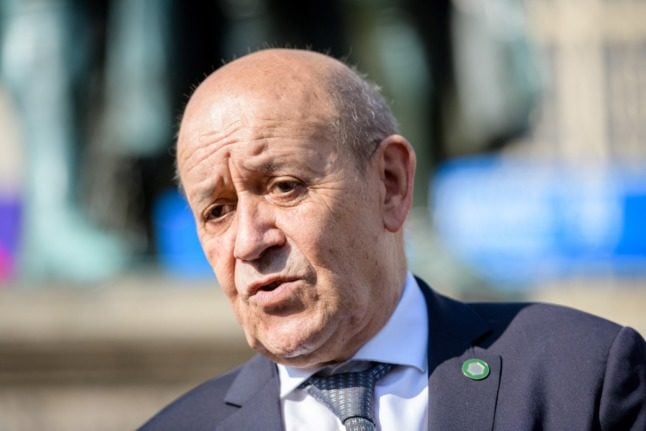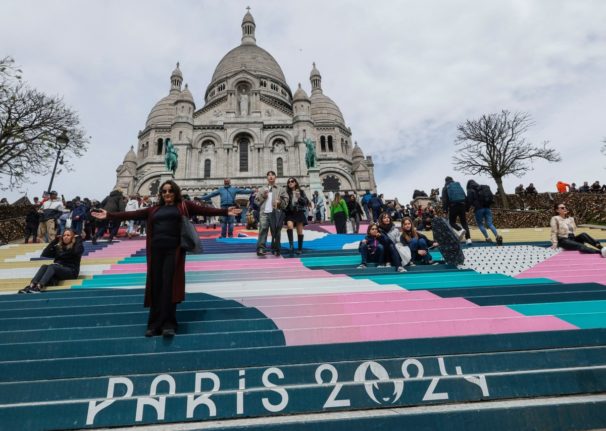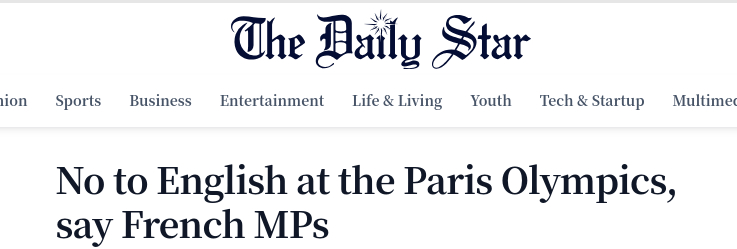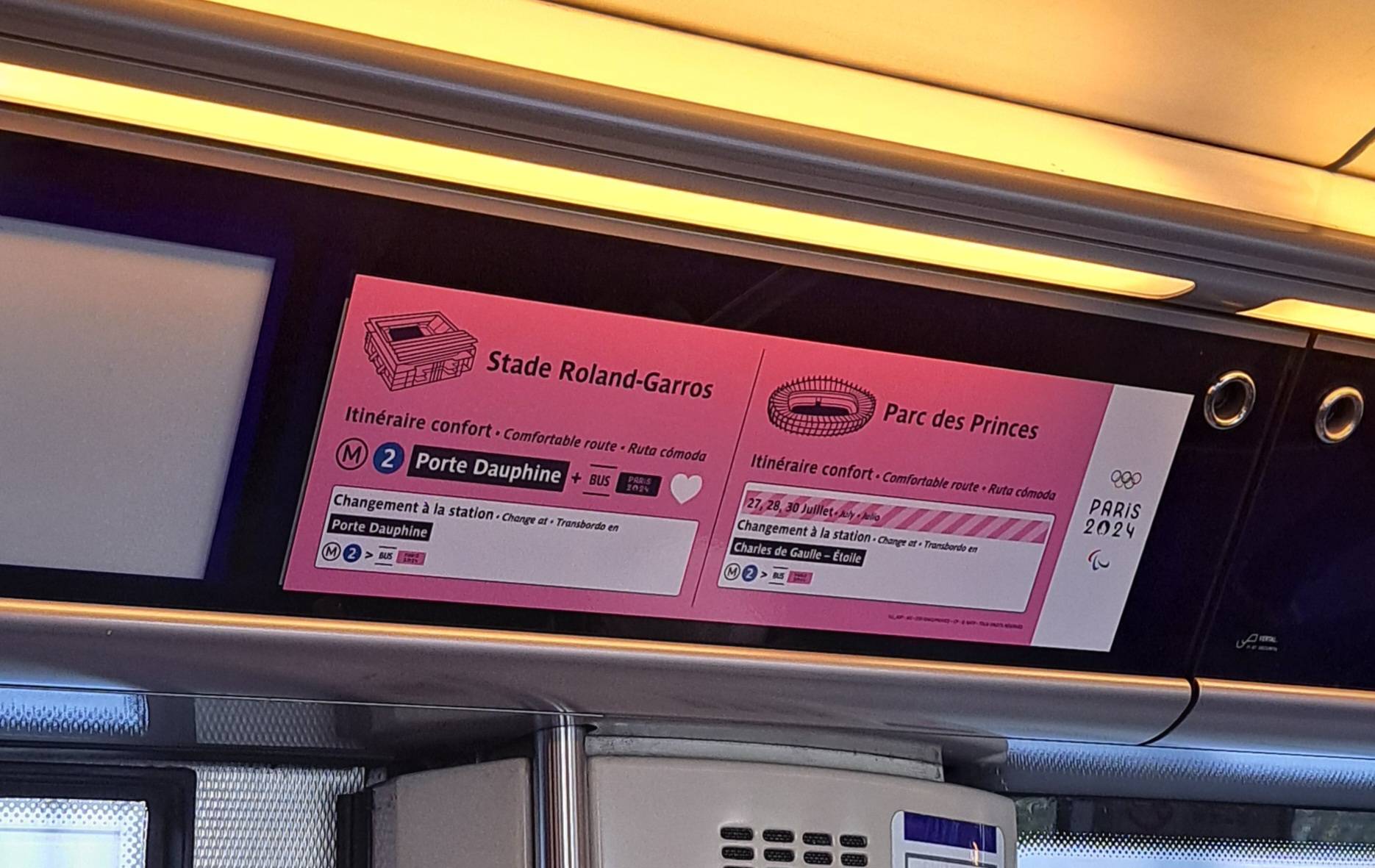President Emmanuel Macron ordered the recalling of the envoys after Canberra ditched a deal to buy French submarines in favour of US vessels, Foreign Minister Jean-Yves Le Drian said.
Le Drian said in a statement that the decision was made to “immediately” recall the two French ambassadors due to “the exceptional seriousness of the announcements made on September 15th by Australia and the United States.”
The abandonment of the ocean-class submarine project that Australia and France had been working on since 2016 constituted “unacceptable behaviour among allies and partners,” the minister said.
“Their consequences affect the very concept we have of our alliances, our partnerships, and the importance of the Indo-Pacific for Europe”
US President Joe Biden announced the new Australia-US-Britain defence alliance on Wednesday, extending US nuclear submarine technology to Australia as well as cyber defence, applied artificial intelligence and undersea capabilities.
The pact is widely seen as aimed at countering the rise of China.
The move infuriated France, which lost a contract to supply conventional submarines to Australia that was worth Aus$50 billion (€31 billion, $36.5 billion) when signed in 2016.
The French ambassador recalls from the United States and Australia, key allies of France, are unprecedented.
At request of @EmmanuelMacron, @Ph_Etienne & his colleague appointed in Canberra are being recalled to Paris for consultations. This reflects exceptional seriousness of announcements made on Sept 15 that constitute unacceptable behavior for allies/partnershttps://t.co/o75Lnte9I8
— French Embassy U.S. (@franceintheus) September 17, 2021
France has made no effort to disguise its fury and on Thursday accused Australia of back-stabbing and Washington of Donald Trump-era behaviour over the submarines deal.
“It’s really a stab in the back,” Le Drian said Thursday. “We had established a relationship of trust with Australia, this trust has been
betrayed”.
France has also called off a gala at its ambassador’s house in Washington scheduled for Friday. The event was supposed to celebrate the anniversary of a decisive naval battle in the American Revolution, in which France played a key role.
‘Extremely irresponsible’
Australia earlier shrugged off Chinese anger over its decision to acquire US nuclear-powered submarines, while vowing to defend the rule of law in airspace and waters where Beijing has staked hotly contested claims.
Beijing described the new alliance as an “extremely irresponsible” threat to regional stability, questioning Australia’s commitment to nuclear non-proliferation and warning the Western allies that they risked “shooting themselves in the foot”.
China has its own “very substantive programme of nuclear submarine building”, Australian Prime Minister Scott Morrison argued Friday in an interview with radio station 2GB.
China claims almost all of the resource-rich South China Sea, through which trillions of dollars in shipping trade passes annually, rejecting competing claims from Brunei, Malaysia, the Philippines, Taiwan and Vietnam.
Beijing has been accused of deploying a range of military hardware including anti-ship missiles and surface-to-air missiles there, and ignored a 2016 international tribunal decision that declared its historical claim over most of the waters to be without basis.
France’s European Affairs Minister Clement Beaune said on Friday that Paris was unable to trust Canberra in ongoing European Union trade deal talks following the decision, before the ambassadors were recalled.
Australian Foreign Minister Marise Payne, in Washington, said she understood the “disappointment” in Paris and hoped to work with France to ensure it understands “the value we place on the bilateral relationship and the work that we want to continue to do together”.





 Please whitelist us to continue reading.
Please whitelist us to continue reading.
And the lesson to all EU countries is ……never interfere with Australia’s vaccine contracts.
Are you trying to be sarcastic?
The kangaroo humpers are just taking a page out of the British hymn book on back stabbing and contract breaking.
Now, now Boggy. The subs contract had a break clause in it and the Australians have now used it. Nothing wrong with that. As for the new alliance, the French were not invited to join because their China policy, as members of the EU, is not their own and consequently unpredictable. Indeed , only last month Macron, Merkel and the Commission were publicly pushing the EU/China Investment Agreement they had agreed with Zi at a time when China was effectively applying sanctions on Australia.
Didn’t realise that the contract had a break-out clause. Who in their right minds would agree to such a contract. The kangaroo humpers certainly pulled a fast one there😮 Were we asleep or didn’t they understand business or just desperate for the contract. No wonder the court jester and Mr Sleepy have got away with it😛 and I thought that the UK was an international laughing stock.
Remarkably, there’s an article in the Sydney Morning Herald ( June 2 ) reporting on a Govt debate in the Australian Senate regarding looking at alternatives to the French sub deal. It seems EU Intelligence only had to read the local Press to see what was going on.